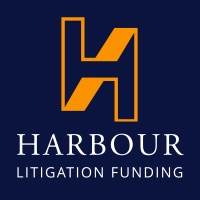11 April, 2018
Collective and group shareholder actions take place almost daily around the world with the purpose of recovering investment losses arising from corporate (or adviser) non-disclosure, misrepresentation or fraud. Broadly speaking there are two types: opt-out and opt-in actions.
The scale of the industry
Every year 300 to 400 new shareholder actions are brought by investors, 80 to 100 of which are outside the U.S.
Currently around 1500 shareholder actions are in progress across 26 di erent jurisdictions.
U.S. class actions are the best known and still account for 200 to 300 new actions and 100 to 200 new settlements each year.
In the last 10 years, an estimated $60bn billions have been returned to investors through these processes but equally it is projected that over $20-30bn was missed by investors. Unclaimed money is not returned to the company at issue, but re-distributed to other investors who do properly claim their share.
Non-U.S. actions can recover signi cantly more than U.S. actions – expected to return $8 billion to investors annually.
Developments to watch
What used to be an almost entirely US shareholder class action landscape, has broadened internationally with di ering jurisdictions, legal systems, requirements and processes. This impacts both investors and listed companies.
Parallel actions, concerning the same/similar defendants and subject matter in the same or
different jurisdictions, have become routine. Thus investors need to make decisions between competing actions (and sometimes jurisdictions) if they wish to recover their (or their clients’) losses.
Investors have a duciary duty to understand where they are impacted by shareholder actions and collect eligible recoveries, particularly where funds are managed on behalf of beneficiaries. Investors in turn have become more exposed for missing eligible payments as their clients have begun to realise not all eligible moneys have been collected.
Technology has made monitoring possible and effective. This has led to the formation of specialist firms offering dedicated support to help manage institutional investors’ responsibilities. As their services become more sophisticated, the scale of these actions is expected to further expand.
The new global landscape
Shareholder actions are here to stay. Parties on either side of the fence will have to review and/ or create robust policies and processes as part of their operational governance.
With thanks to investor action specialist, Institutional Protection Services for providing the statistics.
For further information, please contact:
Ruth Stackpool-Moore, Director of Litigation Funding / Head of Harbour Hong Kong
ruth.sm@harbourlf.com





